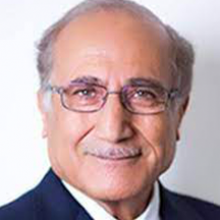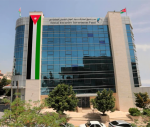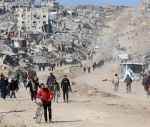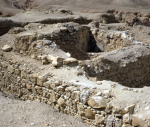You are here
Jordan’s well-deserved position
Dec 07,2014 - Last updated at Dec 07,2014
If I were an American strategist advising the White House master on which country in the Middle East I can trust and fully rely on, which one I would choose?
The criteria for choice would be roughly made up of the following list of characteristics:
The first one is a country with sound political and social profiles where the leadership is compassionate and the people are appreciative of its reform-mindedness. It is not prone to abrupt changes and its path forward is clear and even predictable.
The second characteristic is its ability to withstand external pressures and shocks. In other words, its resiliency in grappling with these challenges with resolve and wisdom is demonstrable.
The third characteristic is its ability to create value for itself from whatever resources it is endowed with or aid it receives from US coffers.
The fourth is a solid and reliable army which is short on aggression and long on peacemaking.
The fifth is the intrinsic value system that the country and its people believe in and hold dear in their hearts and minds.
The list can go on and on. However, no matter what the composition of such criteria, Jordan stands out as the most reliable country.
Jordan’s King Abdullah has championed the reform process long before the Arab Spring began in 2011. Since his accession to the Throne in 1999, King Abdullah focused on reform. A number of formulae were developed and presented before the kick-start of the current one, which had started with the 42 constitutional amendments; the creation of desired constitutional institutions and the counter- and anti-corruption arrangements and measures.
The Arab Spring brought with it many challenges to Jordan. They were a Medusa’s head with scary snakes instead of locks of hair.
The influx of Syrian refugees, the disruption of Egyptian gas supplies, the Israeli aggression against Gaza and the West Bank, particularly the holy sites in Jerusalem, and now the terrorist offensive against Muslims and Christians in the whole region are the most salient.
Did Jordan survive those challenges and was it instrumental in helping others impacted by them? Yes, Jordan did and successfully so; flagrantly so.
Jordan has also embarked on a socio-economic strategy to improve the life of all its citizens and residents.
The 10-year vision that the King called for in March is now in the process of formulation. It will begin to be implemented officially in 2015. However, if we count the adjustment process agreed with the International Monetary Fund, then the reform process is already vibrantly taking place.
While Jordan faces a number of dualistic problems, one of the most obvious ones is the allocation of limited resources between civil and military pursuits. Jordan has convincingly demonstrated its ability to arrive at an optimal mix. The result is that Jordan now enjoys an admirable defence force at an unrivalled cost.
Moreover, a good percentage of the military expenditure is diverted to medical services, productive ventures, social amenities and job creation. Thus the burden of a military budget is strictly low when it is stripped to its pure military components.
Moreover, Jordan does not take its limited resources as an excuse to deny others the help and existence it is expected to extend to the needy.
Through its peacekeeping missions, Jordan plays a very constructive role in almost 15 countries.
Its medical mobile units serve in Gaza, the West Bank and other countries. Jordan opened its borders to refugees seeking an abode in it as early as 1877, and the Syrian refugees are only the latest of such unabated waves.
The reception that King Abdullah received in Washington, DC, and in both the Congress and the White House is well deserved. To quote top Washington officials, the King is frank, wise and reliable. The King is not only representing the Hashemite legacy, but the Jordanian people, all of them.
In his turn, the King is quick to attribute the dignity of his reception to the courage of his people and the armed forces he leads.
The blood-free hands of the Hashemite ruling family, the King’s tolerance and other formidable characteristics make him a very reliable strategic partner.
What is more admirable is that Jordan does not want to play a central role to spite others, belittle their roles or to gain leverage over them. Jordan (King and people) excel because they are like this — it is their nature even when some of them forget that for a while.
On the contrary; Jordan uses its deserved position for the good of others. It is not a coincidence that the Royal family occupies an eminent position and commands the respect of all people the world over.
The writer, a former Royal Court chief and deputy prime minister, is a member of Senate. He contributed this article to The Jordan Times.













